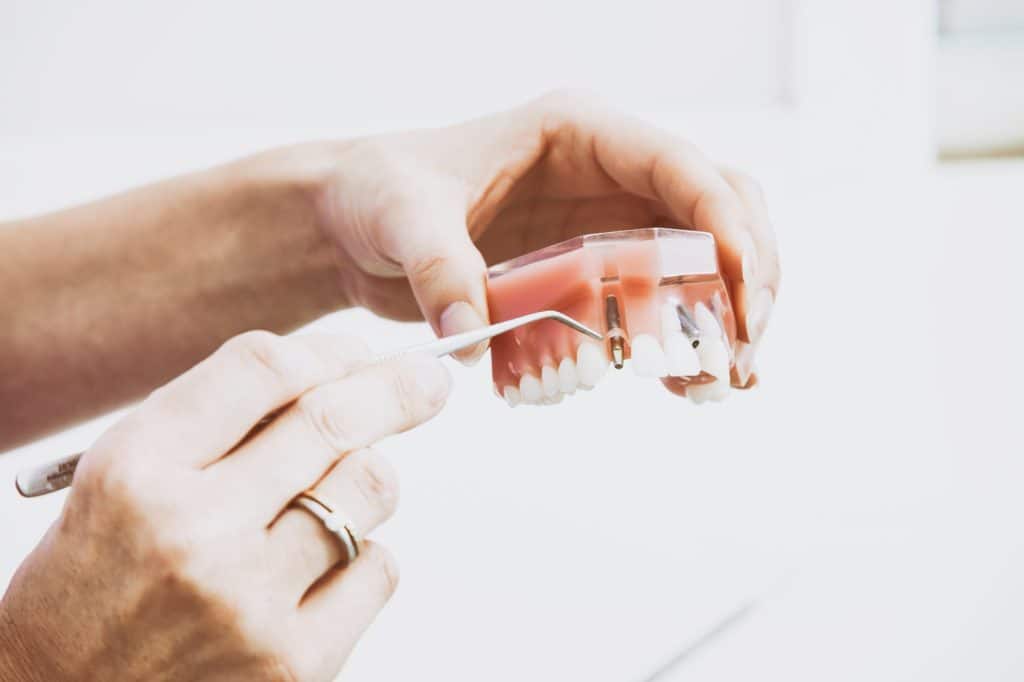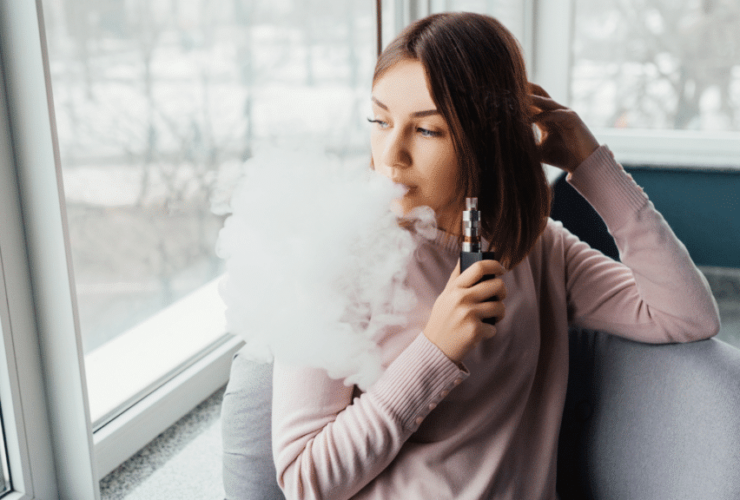A smile is so important to how you feel about yourself. It’s how you express joy and happiness, so you never want to feel self-conscious about it. If you don’t look after your teeth, you may find yourself frequently visiting your dentist in Victoria London.
Your dentist can only do so much however, with most of the maintenance of your teeth coming down to you. The basics everyone knows, but there are some surprising things that affect your teeth’s health that you can keep in mind in everyday life.
Dental Issues That Damage your Teeth
The key to teeth longevity is viewing them as any other organ: a living thing. They have nerve endings and complex tissues that react, often badly, to environmental changes. They undergo a lot of strain every day, through chewing, biting, grinding and talking. There are some common dental issues that plague people.
Tooth decay itself is one of the main problems people face. It is often referred to as dental caries or cavities (holes on your teeth – ouch!). This often occurs when acid is produced from plaque and builds up on your teeth. This build-up is what causes the holes to form in your teeth, and also leading to gum diseases and dental abscesses.
Gum diseases are another common problem dentists see from their patients. There a few different kinds of diseases, but they all occur when the gum starts to become swollen, sore or infected. Most adults in the UK will experience gum disease to some degree, so it sometimes is a case of management. However, if you have a more serious case such as gingivitis, you will need treatment.
Dental abscesses are the final common complication that dentists patients have. It is a collection of pus from a bacterial infection that can form inside the teeth, in the gums or even in the bone that hold the teeth in place. These are often very painful, so you won’t have any problems working out if you have one or not. They should always be treated by a dentist as they only go away with treatment.
Symptoms
So now you’ve read all those slightly terrifying issues, how can you tell if you have them coming on? Early warning signs will prevent you from rushing to the emergency dentist in London victoria when it’s too late.
One common symptom for all of these is bad breath or an unpleasant taste in your mouth. No matter how much you brush, how much mouthwash you use or how many gums you chew, infections are going to make your breath smell. This can be an early symptom for tooth decay or dental abscesses but is a more advanced symptom for gum disease so be careful.
Tooth decay may not even cause any pain, so it’s especially important to look out for the following symptoms.
- Toothache – pain that is either constant and dull or sharp pain with no real cause
- Tooth sensitivity – mostly when eating something hot or cold
- Discoloured spots on your teeth
- Bad breath / an unpleasant taste in your mouth
As mentioned before, abscesses can be incredibly painful so it should be quite clear if you have one. If you keep an eye out for these early symptoms however, you may be able to skip the painful part with a trip to the dentist.
- Redness and swelling in your face
- Red, shiny and swollen gums
- Sensitivity to hot and cold foods or drinks
- Intense throbbing pain in the affected area
- Pain that spreads from your tooth to your ear, jaw and neck on the same side as the affected area
- Increase in pain when lying down, disturbing your sleep
- Again: bad breath
Gum disease has some more subtle symptoms, that may seem relatively benign at first. However, these can easily escalate to more serious diseases if left untreated. The early symptoms are
- Red and swollen gums
- Bleeding gums after brushing or flossing
These symptoms may mean nothing, but you should always seek out your dentist to make sure. These are some more advanced symptoms of diseases such as gingivitis.
- Bad breath / an unpleasant taste in your mouth
- Loose teeth
- Gum abscesses
- Bleeding gums with more pain
- Frequent and painful ulcers
- Receding gums
- A metallic taste in your mouth
- Excess saliva
- Difficulty with swallowing or talking
- A high temperature.
What You Can do at Home to Prevent Them
After reading all of those scary diseases and symptoms I’m sure you’re now wondering what you can do. There are quite a few unhealthy habits we undertake which can lead to these problems. Taking a few easy but regular steps and precautions can really make a difference. Before stating what you can do at home, a reminder that you should still have regular checkups with your dentist. Sometimes your teeth will need a regular cleaning by a professional regardless of your routine and it’s always best to be safe with your teeth. They’re the only ones you’re going to get!
The first and most obvious is to brush with a fluoride-containing toothpaste and floss at least twice a day. Some dentists recommend to brush and floss after a big meal too. You’d be surprised how many people don’t take this seriously. A recent survey shows that 3 in 10 still only brush once a day! Regular brushing and flossing really helps reduce the build-up of plaque on the teeth. If you’re genetically blessed this good routine will keep most ailments at bay. Switching from your manual toothbrush to an electric toothbrush can also make the world of good. They’re far more effective at preventing gum disease than manual brushes.
Those with more sensitive teeth however need to worry about sugar intake. This is the modern person’s number biggest enemy to healthy teeth. Sugar is consumed by acid-producing bacteria in your mouth. This acid eats away at teeth enamel and the longer sugar is in your mouth the longer this acid stays and does damage. Gummy bears and other treats are especially bad as these hardened sweets will stick around in your mouth for hours.
The biggest culprits are soft drinks, diet soft drinks (no sugar, but still contains high amounts of acid) and sports energy drinks. Juice is a more moderate alternative, with water and milk being the least acidic. Cut these down and replace with water as often as you can. If you must have these beverages, have them with meals as more saliva is produced which helps wash it away. Drink them fast and with a straw to minimise the exposure. A good diet, in general, is always great to help keep your mouth a healthy environment for your teeth.
The most difficult for many is smoking and tobacco. Smoking is detrimental to almost every aspect of your health, but it’s especially bad for your gums and therefore your teeth. Without mentioning all the various forms of cancer, they have other effects on your mouth’s health. They not only will stain your teeth, but damage the gums and cause teeth to fall out. Smoking weakens your immune system, making it harder to fight off gum infections and also seriously hampers your gums recovery. Chewing tobacco is the worst of the worst, introducing nasty substances directly onto the gums where they remain for a while.
Believe it or not, the dryness of your mouth makes a massive difference to things. Saliva is needed to moisten and cleanse our mouths and digest food. When you don’t produce enough, your mouth becomes drink and uncomfortable. Many medications induce this such as antihistamines, be sure to check your over the counter medication and ask your doctor about your prescriptions. If so, be sure to keep hydrated, increase your brushing habits and potentially invest in a room vaporiser to add moisture to the air.
Finally is how you should be physically be using your teeth. As mentioned before, they’re a delicate and living thing so be careful! Whenever you see someone open a beer bottle with their teeth, never try and emulate it. They may do no damage at that moment but it helps weaken your teeth over time. This applies to using your teeth to open anything, why use teeth when we invented the scissors! Speaking of inventions, the gum shield is also a great thing. If you play physical contact sports you should always wear one to protect your teeth over time.
What to do When The Worst Happens
So you’ve not been following these steps, or you’re just incredibly unlucky. Now what? Luckily Hermes London Dental Clinic can accommodate your emergency dental needs. The convenient Dentist in Victoria London will find you an appointment whether you’re a new or returning customer. If you require an emergency dentist in Victoria, contact us on 020 7233 7660. Our dentists will see all emergency patients on the same day whenever possible, and you will be offered the next available appointment as soon as you call.
- GERD and Your Teeth: Why you should see a dentist urgently - November 24, 2024
- When a broken tooth is considered a dental emergency - November 24, 2024
- How to prevent tooth decay in children - July 9, 2024




